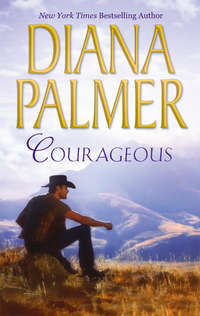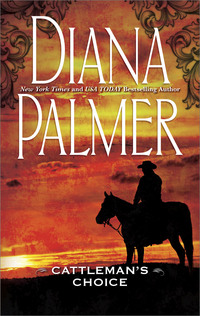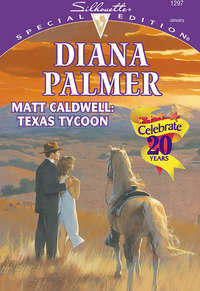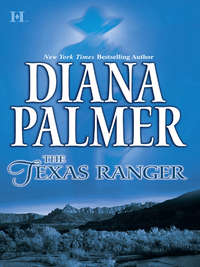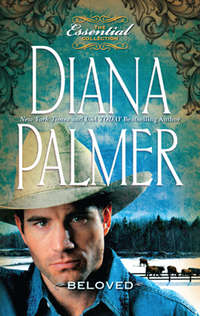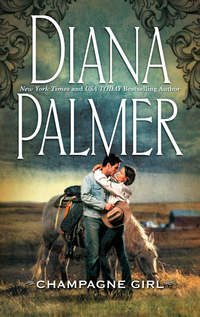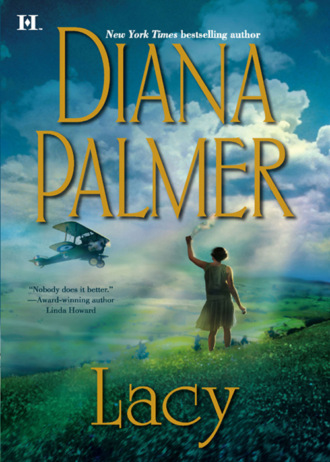
Полная версия
Lacy

DIANA PALMER
Lacy

For my agent,
Maureen Walters, of Curtis Brown, Ltd.,
with love and thanks.
Contents
Chapter One
Chapter Two
Chapter Three
Chapter Four
Chapter Five
Chapter Six
Chapter Seven
Chapter Eight
Chapter Nine
Chapter Ten
Chapter Eleven
Chapter Twelve
Chapter Thirteen
Chapter Fourteen
Chapter Fifteen
Chapter Sixteen
Chapter Seventeen
Chapter Eighteen
Chapter Nineteen
Chapter Twenty
Chapter Twenty-One
Chapter Twenty-Two
Coming Next Month
Chapter
One
The party was getting noisier by the minute.
Lacy Jarrett Whitehall watched it with an air of total withdrawal. All that wild jazz, the kicky dancing, the bathtub gin flowing like water as it was passed from sloshing glass to teacup. She wasn’t really as much a participant as she was an onlooker. It made her feel alive to watch other people enjoying themselves. Lacy hadn’t felt alive in a long time.
Many of the neighbors were elderly people, and she suffered a pang of conscience at what, to them, must have seemed like licentious behavior. The Charleston was considered a vulgar dance by the older generation. Jazz, they said, was decadent. Ladies smoked in public and swore—and some actually wore their stockings rolled to just below the kneecap. They wore galoshes, unfastened, so that they flapped when they walked—hence the name given to the new generation: flappers. Shocking behavior to a society that had only since the war come out of the Victorian Age. The war had changed everything. Even now, four years after the armistice, people were still recovering from the horror of it. Some had never recovered. Some never would.
In the other room, laughing couples were dancing merrily to “Yes, We Have No Bananas” blaring from Lacy’s new radio. It was like having an orchestra right in the room, and she marveled a little at the modern devices that were becoming so commonplace. Not that any of these gay souls were contemplating the scientific advances of the early twenties. They were too busy drinking Lacy’s stealthily obtained, prohibition-special gin and eating the catered food. Money could almost buy absolution, she mused. The only thing it couldn’t get her was the man she wanted most.
She fingered her teacup of gin with a long, slender finger, its pink nail perfectly rounded. The color matched the dropped-waist frock she was wearing with its skirt at her knees. It would have shocked Marion Whitehall and the local ladies around Spanish Flats, she thought. Like her friends, she wore her hair in the current bobbed fashion. It was thick and dark and straight, and it curved toward her delicate facial features like leaves lifting to the sun. Under impossibly thick lashes, her pale, bluish gray eyes had a restlessness that was echoed in the soft, shifting movements of her tall, perfectly proportioned body. She was twenty-four, and looked twenty-one. Perhaps being away from Coleman had taken some of the age off her. She laughed bitterly as she coped with the thought. Her eyes closed on a wave of pain so sweeping that it counteracted the stiff taste of the gin. Coleman! Would she ever forget?
It had all been a joke, the whole thing. One of brother-in-law Ben’s practical jokes had compromised Lacy, after she’d been locked in a line cabin all night with Cole. Nothing had happened, except that Cole had given her hell, blaming her for it. But it was what people thought happened that counted. In big cities, the new morals and wild living that had followed World War I were all the rage. But down in Spanish Flats, Texas, a two-hour drive from San Antonio, things were still very straitlaced. And the Whitehalls, while not wealthy, were well known and much respected in the community. Marion Whitehall had been in hysterics about the potential disgrace, so Cole had spared his mother’s tender feelings by marrying Lacy. But not willingly.
Lacy had been taken in by Marion Whitehall eight years ago, after Lacy’s own parents died on the Lusitania when it was torpedoed by the Germans. Lacy’s mother and Cole’s had been best friends. Lacy’s one remaining relative, a wealthy great-aunt, had declared herself too elderly and set in her ways to take on a teenager. The Whitehalls’ invitation had been a godsend. Lacy had agreed, but mostly because it allowed her to be near Cole. She’d worshipped him since her wealthy family had moved to Spanish Flats from Georgia when Lacy had been just thirteen to be near her great-aunt Lucy and great-uncle Horace Jacobsen, who had retired from business after making a fortune in the railroad industry. Great-uncle Horace had, in fact, founded the town of Spanish Flats and named it for the Whitehall ranch, which had sheltered him in a time of desperate need. He and Lacy’s great-aunt had been a social force in San Antonio in those days, but it was Spanish Flats Ranch, not Great-uncle Horace’s towering Victorian mansion that had fascinated Lacy from the beginning—as did the tall cattleman on the ranch property. It had been love on first impact, even though Cole’s first words to her had been scathing when she’d ridden too close to one of his prize bulls and had almost gotten gored. That hadn’t put her off, though. If anything, his cold, quiet, authoritative manner had attracted her, challenged her, long before she knew who he was.
Coleman Whitehall was an enigma in so many ways. A loner, like his old Comanche grandfather who’d taken him over in his youth and showed him a vanished way of life and thought. But he’d been kind to Lacy for all that, and there were times when she’d glimpsed a different man, watching him with the cowboys. The somber, serious Cole she thought she knew was missing in the lean rancher who got up very early one morning, caught a rattlesnake, defanged it and put it in bed with a cowboy who’d played a nasty practical joke on him. The resulting pandemonium had left him almost collapsed with laughter, along with the other witnesses. It had shown her aside of Cole that she remembered now for its very elusiveness.
Despite his responsibilities at home, the lure of airplanes and battle had gotten to Cole. He’d learned to fly at a local barnstorming show, and had become fascinated with this new mode of transportation. The sinking of the Lusitania had brought his fighting blood up, and convinced him that America would inevitably be pulled into war. He’d kept up his practice at the airfield, even though his father’s death had stopped him from joining the group of pilots in the French Escadrille Americaine, which became the exclusive Lafayette Escadrille.
When America did enter the war in 1917, a neighboring rancher had taken responsibility for the ranch and womenfolk in his absence, keeping the land grabbers away with financial expertise. Meanwhile Lacy and Katy and Ben and Marion had watched the newspapers with mounting horror, reading the posted casualty lists with stopped breath, with sinking fear. But Coleman seemed invincible. It wasn’t until the year after the armistice, when he’d turned up back at the ranch after a few sparsely worded letters, an old flying buddy in tow, that they’d learned he’d been shot down by the Germans. He’d only written that he’d been wounded, not how. But apparently it hadn’t done him any lasting damage. He was the same taciturn, hard man he’d been before he’d gone to France.
Well, not quite the same. Lacy treasured the precious few memories she had of Cole’s tenderness, his warmth. He hadn’t always been cold—especially not the day he’d left to go to war. There had been times when he was so human, so caring. Now, there was a coldness that was alien, a toughness that perhaps the war had created. Not that the family had any real idea of what the war had been like for him on a personal basis; he never spoke of it.
Ben had been too young to fight. With Cole’s return, he’d followed after his big brother with wide, dark eyes, all questions and pleas to hear about it. But Coleman wouldn’t tell him a thing. So Ben hounded Jude Sheridan. Jude, whom Coleman called Turk, had been an ace pilot with twelve credited kills. He was an easygoing, too-handsome man with a quick temper and a physique that kept young Katy awake nights sighing over him. Turk had filled Ben’s ear with bloodcurdling tales—until Coleman had gotten tired of it and stopped Turk from encouraging his young brother.
That was about the same time that he’d had to stop Katy from tagging along after the tall, blond flyer who’d become his ranch foreman. Turk was good with horses, and he had a shocking reputation with women. But that was something Katy wasn’t going to find out, Cole had informed her coldly. Turk was his friend, not a potential conquest, and Katy had better remember it. Even now, Lacy could see the heartbreak on the slender, green-eyed girl’s face as Cole blasted her dreams away. He’d even gone so far as to threaten her with firing Turk altogether. So Katy had withdrawn—from her brother, from her family—and had gone wild with the new morality. She’d bought outrageous clothes; she began to use makeup. She went to parties in San Antonio and drank outlawed bathtub gin. And the more Coleman threatened her, the wilder she got.
About that time, Ben had turned his attention to Lacy. It had been embarrassing, because she was twenty-three and Ben only eighteen. Coleman teased him about it when he got wind of it, which only added to the frustration. One night, Ben lured Cole and Lacy to a line cabin and locked them in. He went home to bed, and by the time they were discovered the next morning, they were hopelessly compromised. So Coleman did the expected thing and married her. But he resented her, ignored her, put a wall between them that all her efforts hadn’t dented. He refused to let her close enough to give their marriage a chance.
There had been an attraction between them for a long time—a purely physical one on his part—that had found its first expression the day he’d left for the war. Despite the promise of that long-ago embrace, he hadn’t touched Lacy since he’d been home again, not until after the wedding. The tension between them had reached flash point after an argument in the barn. Cole had backed her up against the wall that rainy morning in the barn and had kissed her until her mouth was swollen and her body raging with unexpected passion. That night, he’d come to her room and, in the darkness, had taken her. But it had been quick, and painful, and she remembered the strength in his lean hands as he’d held her wrists beside her head, not even allowing her to touch him through the brief intimacy while his hard mouth smothered her cries of pain. He’d left her immediately, white-faced, while she cried like a hurt child, and he hadn’t touched her again. The next morning, he’d acted as if nothing at all had happened. If anything, he was harder and colder than before. Lacy couldn’t bear the thought of any more of his brutal passion and his indifference. She’d packed her bags and gone to San Antonio, to be a companion to her great-aunt Lucy, Great-uncle Horace’s widow. Shortly thereafter, the gentle old lady had died. Now Lacy had the house and plenty of money that she hadn’t even expected to inherit. But without Cole, she had nothing.
She still shuddered, thinking about the morning she’d left Spanish Flats. Marion had been hurt, Katy and Ben shocked. Coleman had been…Coleman. Revealing nothing. Eight months had passed without a word from him, without an apology. Lacy had hated him at first because of the pain he’d inflicted so coldly. But one of her married friends had explained intimacy to her, and now she understood a little. She’d been a virgin, so it wasn’t unexpected that her first time had been difficult. Perhaps Cole just hadn’t cared enough to be gentle with her. At any rate, if it happened again, it might be less traumatic, and she might get pregnant. She blushed softly, thinking of how wonderful it would be to have a child, even under these circumstances. She was so totally alone. She could never have Cole, but it would have been nice to have his child.
It was such a good thing that she had Great-aunt Lucy’s inheritance. Added to the unexpectedly small inheritance her parents had left, it had made it possible for her to live in style and give extravagant parties. Coleman hated guests, and gaiety. Lacy could have done without them, too, if she’d had Coleman’s love. Even his affection. But she had nothing, except the contempt that had burned from his dark eyes every time he looked at her. She had money, and he was losing more of his by the day. That had been a point of contention between them from the very beginning. Cole had never gotten over the fact of her wealth…and his lack of it. It was an unexpected prejudice in a man who didn’t seem to have a bigoted bone in his lean body.
Lacy sipped her gin quietly, her eyes on the clock. Marion had written to say that Cole would be in San Antonio today, on business. She’d asked him to stop by and see Lacy while he was in town. Lovely Marion, always the matchmaker. But she didn’t know the real situation. There was nothing more hopeless than the relationship the way it was now. Even if Lacy had thought about asking Coleman for a divorce, as old-fashioned and proper as he was, she knew Cole would never agree to that. It had been his own principles, added to his mother’s horror of scandal, that had made him drag Lacy to the altar in the first place after the night in the line cabin, even though he hadn’t touched her. Apparently he was content for things to go on as they were; for Lacy to live in San Antonio, while he contented himself with business-as-usual at Spanish Flats. She laughed bitterly. All her young dreams of marriage and children and a husband to love and cherish her, and this was what she had. Twenty-four years old, and she felt fifty.
Children had been another problem. She’d worked up enough nerve to approach Coleman shortly after their marriage and ask him if he wanted them. She’d thought in her innocence that a child might make their relationship easier. His face had gone a horrible pale shade, and he’d said things to her that she still had trouble accepting. No, he’d told her, he didn’t want children. Not with a pampered little rich girl like Lacy. And after a few more insulting words, he’d stormed off in a black temper. She’d never had the nerve to ask him a second time. In her heart, she’d hoped that she might become pregnant after that uncomfortable night in his bed, but it hadn’t happened. Maybe it was just as well, because Cole would let no one close to him. She’d tried everything except being herself. It was hard to be herself around Cole, because he inhibited her so much. She wanted to play with him and tease him and make him laugh. She wanted to make him young, because he’d never been that. He’d been a man ever since she’d known him, a solitary, lonely figure with steel in his makeup—even at the age of nineteen—which he’d been when Lacy came to live with the Whitehalls.
In the other room, the radio was giving out New Orleans jazz, and the new Charleston dance was being demonstrated by two visitors whom Lacy didn’t know. There were a lot of people in the house that she didn’t know. What did it matter? They filled the empty rooms.
Lacy walked down the hall, her knee-length gray dress clinging softly to the slender lines of her body, down her hose-clad legs, to her buckled high heels. She felt restless again, hungry. She remembered the hardness of Cole’s mouth, the aching sweetness of his kiss that left her lips softly swollen. All that exquisite passion they’d shared the morning in the barn, and it had led to…that. She shivered. Surely women only allowed men such license with their bodies to get children.
Bess, one of her married friends, had told her that sex was the most exquisite experience in her life. “Mahhhhhvelous,” she’d said, laughing, her eyes full of the love she shared with her husband of five years. Lacy had been curious, despite her bad experience, to find out if intimacy could be pleasurable. But she wasn’t quite curious enough to let George Simon have what he’d been lusting after for the past few weeks. George was a sweet man, a good friend. But the thought of his greedy hands on her body was somehow offensive. It was a kind of sacrilege to think of letting anyone but Cole touch her that way.
What utter rot, she thought, with a harsh laugh. Ridiculous to moon over a man who didn’t love her. But worshipping him was such a habit. And she did. She loved everything about him, from the way he sat his horse to the arrogant tilt of his dark head, to the way his skin caught the light and burned like bronze. He wasn’t terribly good to look at, except to Lacy, but he had a masculinity that set her teeth on edge, that made her body go hot and throbbing. Just to touch him could make her tremble.
She sighed shakily as her gray eyes swept the hall. Would he come? Her heart pounded beneath her bodice. Just to see him, she thought, just to lay eyes on him once more, would be heaven. But it was already eleven o’clock, and Cole was usually in bed by nine so that he could be up at the crack of dawn. She turned back toward the living room with a heart like lead. No, he wasn’t coming tonight. It had been a foolish hope.
She went back to her guests, laughing, drinking more and more gin. The police made raids once in a while, but Lacy didn’t care if they came and found the gin. She might go to jail, and Coleman might come and bail her out. Then he might bring her home, and be so inflamed by smoldering passion that he’d do to her what Rudolph Valentino, as the sheik, had done to Agnes Ayres in that wildly passionate film The Sheik. Her heart ran away. She’d gone wild over that movie two years ago and had learned to do the tango soon after Valentino’s Blood and Sand film was released. But, of course, no one in her circle would do it like Valentino.
She took another sip of gin, lost in her thoughts. She jumped as a hand lightly touched her shoulder. She looked up, wide-spaced eyes huge in her face, and relaxed a little when she saw George Simon behind her.
“You startled me,” she said in her calm, very Southern drawl.
“Sorry,” he said, grinning. Well, his teeth were perfect, even if he was slightly balding and overweight. “I just thought you might like to know that you have a visitor.”
She frowned. It was midnight, and despite the fact that the huge Victorian house was overrun with people, it was unusual for anyone to come calling so late. And then she remembered. Cole!
“Male or female?” she asked nervously.
“Definitely male,” George said, without smiling. “He looks like the portrait over the living room mantel. That’s where I left him, staring at it.”
Lacy spilled the drink down the front of the stylishly wispy dress and mopped frantically at it with a handkerchief. “Oh, damn,” she said curtly. “Well, I’ll worry about that later. He’s in the living room?”
“Say, kid…You’re like flour in the face. What’s wrong?”
“Nothing,” she said. Everything, she thought as she turned and walked stiffly down the long hall, dimly lit by sconces, her wide-heeled shoes beating a dainty tattoo on the bare, polished wood floors as she walked.
She hesitated at the doorway, her eyes huge in her face, her hand poised on the doorknob. She knew already who was going to be waiting for her. She knew by George’s description, but even more by that smell, that pungent smoke that teased her nose even as she opened the door and saw him.
Coleman Whitehall spun on his booted heel with the precision of an athlete. Which he was, of course; ranch work demanded that kind of muscle. His dark eyes narrowed as he looked at Lacy, blazing out of a face like leather under hair as dark as her own. His skin was bronzed, a legacy from the Comanche grandfather who’d instilled pure steel in his makeup and taught him that emotion was a plague to be avoided at all costs.
He was wearing work clothes. Jeans and boots, with wide, flaring leather chaps and a vest over his blue-patterned shirt, leather wristbands on the cuffs. A string hung out of the pocket, which would be the tobacco pouch he always carried, along with a small, flat packet of papers to roll cigarettes from. His forehead was oddly pale as he watched her, his wide-brimmed hat tossed carelessly onto an elegant Victorian wing chair. He lifted his square chin and stared at her with unblinking, unforgiving eyes, the very picture of a Texas cattleman with his weather-beaten face and unyielding pride and blatant arrogance.
She closed the door and moved forward. He didn’t frighten her. He never had, really, although he towered over her like a lean, taciturn giant. He’d hardly smiled in the years she’d lived under his roof. She wondered if he ever had as a boy. She loved him. But love was something he didn’t need. Love. And Lacy. He could do very well without either, and he’d proven it over the past eight lonely months.
“Hello, Cole,” she said softly.
He lifted the smoking cigarette to thin, firm lips that held a faintly mocking smile. “Hello, yourself, kiddo. You look prosperous enough,” he mused, his eyes narrow on her short dark hair in its bob, her face with its outrageously dark lip rouge, her blue eyes quiet and abnormally bright as she stood before him, very trendy in her soft gray dress that clung to her slender figure and displayed her long, elegant legs with scandalous efficiency.
She didn’t avoid his stare. Her eyes wandered over his face like loving hands, seeing the new lines, the rough edges. He was twenty-eight now, but he’d aged in these months they’d been apart. The war had aged him. Marriage hadn’t seemed to help.
“I’m doing very well, thanks,” she said, trying to keep her voice light. It was hard to handle this meeting, with the memory of her abrupt departure—and the reason for it—still between them. He seemed unperturbed by it, but her knees felt weak. “What brings you to San Antonio in the middle of the night?”
“I’ve been trying to sell cattle. Winter’s coming on. Feed’s getting hard to come by.” He studied her blatantly, but there was no feeling in his dark eyes. There was nothing at all.
She moved closer, inhaling the masculine smell of him, the scents of tobacco and leather that had become so familiar. She touched his sleeve gently, loving the warmth of him under it, only to have him jerk away from her and walk back toward the fireplace.
Her hand felt odd, extended like that. She pulled it back to her side with a wistful, bitter little smile. He still didn’t like her to touch him, after all this time. He never had. He took, but he never gave. Lacy wasn’t sure that he knew how to give.
“How is your mother?” she asked.
“She’s fine.”
“And Katy and Bennett?”
“My sister and brother are fine, too.”
She studied his long, lean back, watching him stare at his likeness above the mantel. She’d had it painted soon after she’d left Spanish Flats, and it was his mirror image. Dark, brooding, with eyes that followed her everywhere she went. He was wearing work clothes in the portrait, with a red bandanna at his throat and a white Stetson atop his dark, straight hair. She loved the portrait. She loved the man.
“What’s that in aid of?” he asked insolently, gesturing up at it. He turned, pinning her with his dark gaze. “For show? To let everyone know what a devoted little wife you are?”
She smiled sadly. “Are we going to have that argument again? I’m not suited to the ranch. You’ve been telling me that since the day I stepped on the place for the first time. I’m—how did you put it?—too genteel.” That was a lie. She was well suited, and she loved it. Her eyes glared at him. “But we both know why I left Spanish Flats, Cole.”
His eyes flashed, and a dark stain of color washed over his high cheekbones. He averted his eyes.


